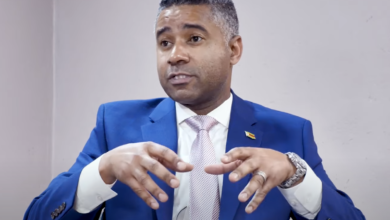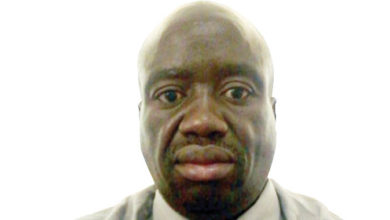Zapu warns of future military backed coups

The Dumiso Dabengwa led Zapu party has warned that another military orchestrated coup is likely to take place again in future, as the army has become heavily involved in the country`s politics.
This reflection came as the revolutionary party celebrated its 57 year anniversary on Sunday. The revolutionary party said it has observed many lessons for Zimbabwe that are often taken for granted yet are vital for the country’s politics.
In a speech to commemorate the 57 years, Zapu president Dr Dumiso Dabengwa, said since the military had involved itself in politics, it will continue doing so to maintain its stronghold over the state.
“As we celebrate 57 years of ZAPU’s founding, a lesson for the democratic movement in this country is that a canine that has tasted the blood of a chicken will not stop after eating the first chicken unless strong measures are taken to curtail the habit,” he noted.
“The use of state machinery for political ends, the undisguised appetite for restricting democratic space, and the ingrained tendency for elite aggrandisement in the middle of misery are issues that lie at the repression of ZAPU in both the colonial and post-independence periods. We have maintained the course but it deserves more attention and solidarity from the rest of the progressive parties in the political spectrum.”
Last year in November before the military moved in to remove then President Robert Mugabe from power, Dr Dabengwa was the first to publicly declare that a military coup would take place in the country as some members of the Zimbabwe National Army were unhappy with the political developments in the country.
He also predicted that most Zimbabweans would back the military move as they were tired of Mugabe’s rule.
This year, just before the elections, the ZAPU leader was the first again to publicly acknowledge that Zimbabweans had made a mistake in endorsing the military takeover.
In his speech, the former ZIPRA military intelligence supremo, said military involvement does not yield the expected results as some would expect instead it builds on to the chaos, as Zimbabweans have come to learn.
“When (former) President Robert Mugabe was forced out of power in November 2017 there was general euphoria that we had reached the end of an era. The follow-up to that ‘soft coup’ has not met expectations; on the contrary the 2018 elections were not followed by significant increase in regime legitimacy,” he said.
ZAPU often does not articulate the importance of its survival as a contribution and inspiration to other progressive parties in the country as its struggle for democracy, good governance and people-centered development are challenges it has faced, Dr Dabengwa claimed.
“Firstly, the total crackdown on ZAPU by the pre-independence racist regime of Ian Smith and his Rhodesian Front that drove the party underground and precipitated the armed struggle was to some extent to be expected.
“Seizure of properties, restriction of thousands of our leaders in remote camps, detentions and imprisonment without fair trial, and all manner of restrictions on freedom of assembly and access to information only galvanised us to take a leading role in all aspects of the freedom and independence struggle. ZAPU and its army, the Zimbabwe People’s Revolutionary Army (ZPRA) was at the forefront in bringing about independence in 1980 in partnership with ZANU and its ZANLA forces,” he narrated.
Dr Dabengwa said Zimbabwe is 38 years old but the country still has unfinished business that occurred in its formative years.
“The scars of past injustices and the lack of resolution of the legacy of Gukurahundi continue to haunt the country whatever veneer is put on tentative approaches by official and independent initiatives.
“In the past few weeks Chief Vezi Mafu (Maduna of Filabusi) not only raised the issue of Gukurahundi but went further to write to the United Nations to be involved. This strong deposition from the Chief, which is shared by others in Matebeleland, has our unequivocal support. Indeed, the killing of over 20,000 unarmed people in the 1980s has not received as much attention in spite of global concerns in cases of genocide and mass repression in the last half of the 20th century,” he said.
ZAPU believes its challenges in Zimbabwe are a result of complex geopolitical considerations, which emanate in the global context between powerful nations.
“That notwithstanding, ZAPU and the numerous families and communities that were affected do not have a limitation on expectation of justice in this case of gross human rights violation and unprovoked political aggression. To add insult to injury there has not even been a mere apology, let alone the beginning of official accountability and restitution,” said the ZAPU president.






